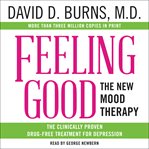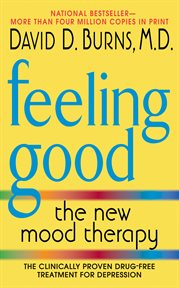Feeling good The new mood therapy
eAudio - 2017
The good news is that anxiety, guilt, pessimism, procrastination, low self-esteem, and other 'black holes' of depression can be cured without drugs. In Feeling Good, eminent psychiatrist David D. Burns, M.D. outlines the remarkable, scientifically proven techniques that will immediately lift your spirits and help you develop a positive outlook on life. Now, in this updated edition, Dr. Burns adds an all-new Consumer's Guide To Antidepressant Drugs, as well as a new introduction to help answer your questions about the many options available for treating depression. Recognize what causes your mood swings. Nip negative feelings in the bud. Deal with guilt. Handle hostility and criticism. Overcome addiction to love and approval. ...Build self-esteem. Feel good every day. Please visit www.feelinggood.com to access supplemental materials, the Feeling Good Podcasts, the Feeling Good Blog, and more!
- Subjects
- Published
-
[United States] :
HarperAudio
2017.
- Language
- English
- Corporate Author
- Main Author
- Corporate Author
- Other Authors
- Edition
- Unabridged
- Online Access
- Instantly available on hoopla.
Cover image - Physical Description
- 1 online resource (1 audio file (13hr., 21 min.)) : digital
- Format
- Mode of access: World Wide Web.
- ISBN
- 9780062686909
- Access
- AVAILABLE FOR USE ONLY BY IOWA CITY AND RESIDENTS OF THE CONTRACTING GOVERNMENTS OF JOHNSON COUNTY, UNIVERSITY HEIGHTS, HILLS, AND LONE TREE (IA).


